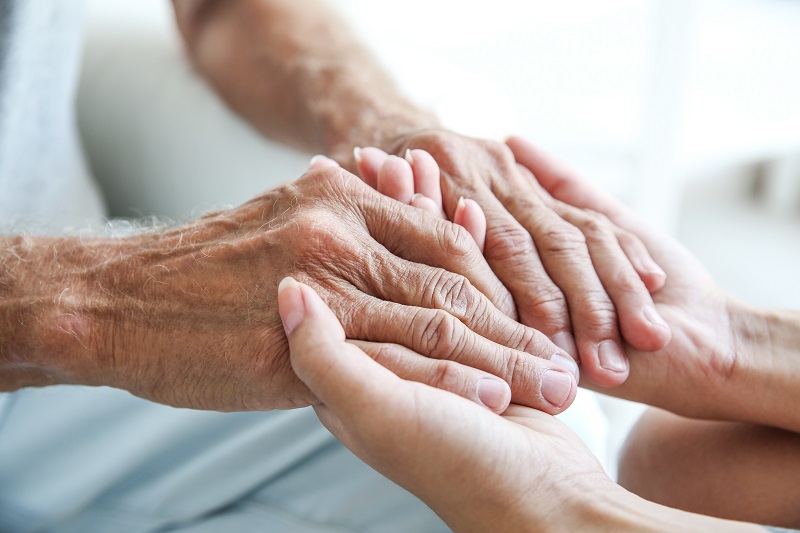
Adult guardianship occurs when a court decides that an adult individual does not have “legal capacity” to address their own basic needs, such as managing money or staying safe and healthy. The court will then appoint another person – a guardian – to make decisions for the individual. Guardianship is a very restrictive legal arrangement that takes away an individual’s basic rights and ability to make the most important decisions of life. As a result, it should be the last resort when someone needs help.
According to a 2020 report, Pennsylvania has over 18,400 adults living under guardianship. More than half of those adults are age 60 and over. Pennsylvania court records also show that several thousand new guardianship cases are filed each year. Until recently, there was no automatic right to counsel for those facing guardianship or under guardianship in Pennsylvania. A 2013 analysis from our partners at the Center for Advocacy for the Rights and Interests of the Elderly (CARIE) found that people facing a court-imposed guardianship were often not present at the court hearing, and/or did not have a lawyer to help them. After a guardian is appointed, it can be hard to find legal help if the individual is unhappy with the guardian, is being abused, exploited, or neglected, or believes a guardian is no longer needed.
After over a decade of advocacy by SeniorLAW Center and other advocates, the Pennsylvania guardianship statute was amended by the passage of Act 61 of 2023, which brought enhanced protections to adults facing guardianship in Pennsylvania. The cornerstone of the law is the mandatory representation by counsel for every adult facing guardianship proceedings, regardless of the individual’s ability to pay. The law clarified that counsel must act as a zealous advocate for their client’s wishes. Additionally, petitioners must demonstrate that less restrictive alternatives are unavailable or insufficient. Finally, enhanced oversight of legal guardians is now required by law.
SeniorLAW Center’s Access to Justice in Guardianship Project was created in 2020 to respond to these issues.
HOW WE HELP:
- Accept court appointments in Philadelphia and Montgomery Counties to represent eligible Pennsylvania residents, aged 60+, who are facing guardianship proceedings.
- Provide advice, information, and referrals through our PA SeniorLAW HelpLine to Pennsylvania residents age 60 and older who are facing guardianship proceedings, who have already been appointed a guardian but are experiencing abuse, exploitation, or neglect by the guardian or who wish to limit or end the guardianship.
- Advocate for changes to state law and local court rules to better protect the rights of older adults involved in guardianships.
- Educate the public about less-restrictive alternatives to guardianship and the legal rights that exist for people facing guardianship or who already have guardians.
Please note: As advocates for those facing or under guardianship, SeniorLAW Center does not petition for guardianship over older adults or provide advice to third parties about how to become a guardian.
For more information about this project or SeniorLAW Center’s services in the guardianship area, call the PA SeniorLAW Helpline at 877-727-7529.
ADDITIONAL INFORMATION:
- Frequently Asked Questions – Information regarding guardianship in Pennsylvania, and your options if you are placed under guardianship.
- Guardianship Outreach Flyer– An information flyer about the Access to Justice in Guardianship Project at SeniorLAW Center, designed for the public.
- “99% of the world has no idea’: Inside the shocking legal guardianship industry” – 2021 article in The Guardian about the Netflix film “I Care a Lot” and guardianship abuse in the United States. SeniorLAW Center’s Executive Director, Karen C. Buck, is quoted.
- “Protections for vulnerable Pa. seniors lag, reforms to guardianship system ‘stuck’” – 2020 article from Spotlight PA with updates on reforms to guardianship in Pennsylvania.
- “She went to prison for fraud and bad checks. Then courts around Philly let her manage the finances for elderly residents” – 2018 article from The Philadelphia Inquirer about fraud committed by a professional guardian in the greater Philadelphia area.
- “Opinion: Pa. needs to reform the guardianship system” – 2019 opinion piece in The Philadelphia Inquirer co-authored by SeniorLAW Center’s Executive Director, Karen C. Buck.
- “How the Elderly Lose Their Rights” – 2017 article from The New Yorker about abuse of the guardianship system in Nevada.

